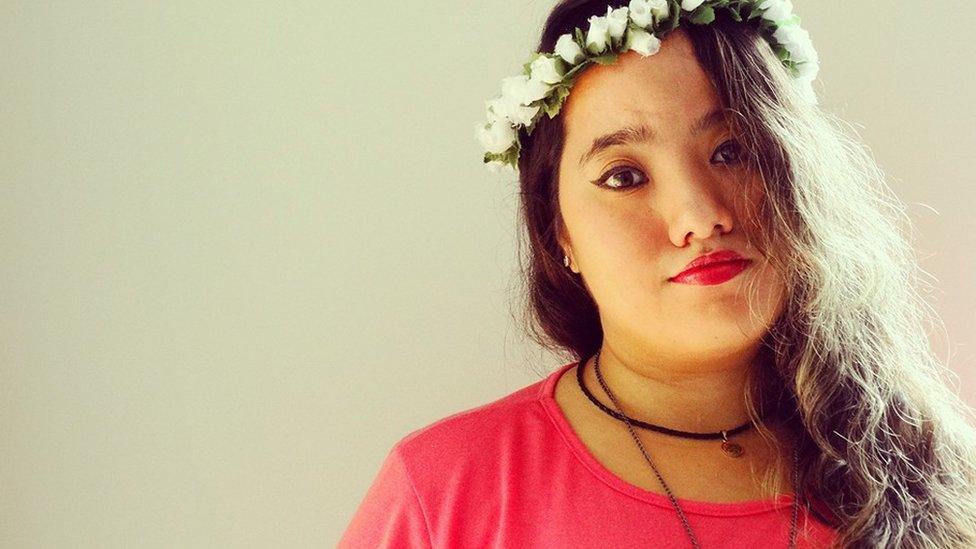Microcephaly: 'It's not the end of the world'
- Published
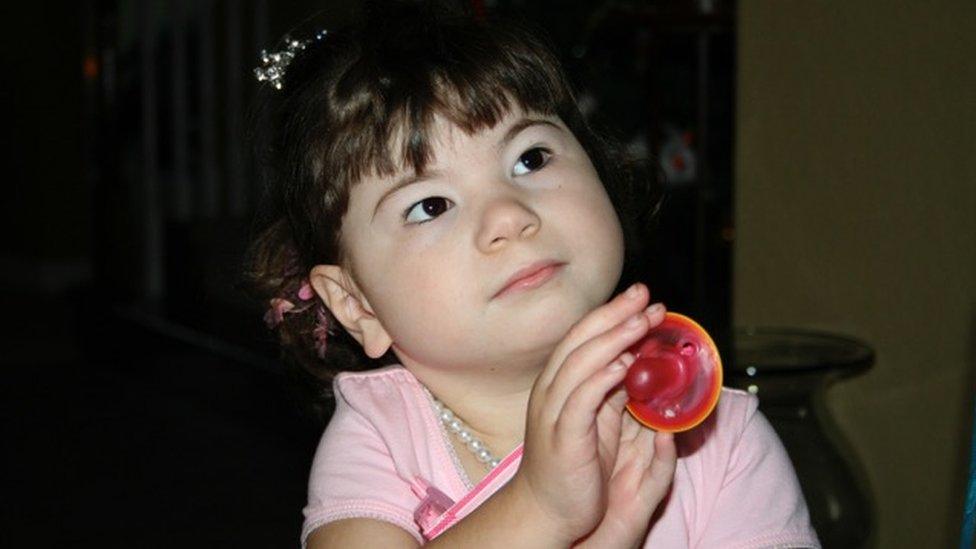
Laney Frohock from Texas, US - pictured here aged four - has microcephaly
Microcephaly has come to prominence since the news reports of the Zika virus being linked to birth defects.
The condition causes the head to be small in size and the brain to under-develop.
But it is not known why babies are born with microcephaly.
Gabrielle Frohock from Austin, Texas, US is a mum of three daughters - her last born - nicknamed Laney - has microcephaly.
This is her story.
Diagnosis
"After she was born doctors saw her head was too small. They did a cat scan the same day and diagnosed her with microcephaly.
Part of the corpus callosum, or the nerve fibres, didn't form at the back of the head that connects the two hemispheres of the brain.
Doctors didn't expect her to survive beyond a few months old.
I had never heard of the condition before, and it was complete and utter devastation when we got the news.
We also found out later she has a chromosome disorder that may be a cause of the microcephaly.
I was determined I would love her and hold her - I did not put her down for six months, as I didn't know how long she would survive.
'I prayed for a miracle'
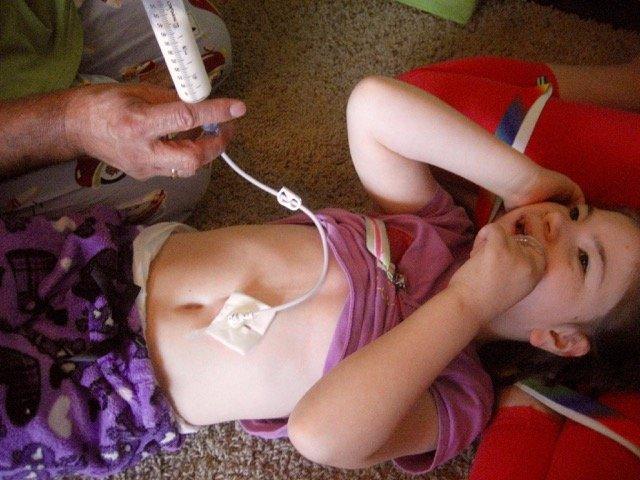
Laney being fed through a gastrostomy button
"At a year old, she was like a new-born. Things just took her more time.
There are varying extremes of the condition - Laney is towards the end where her brain has a lot more problems, but doesn't make her value any less.
She doesn't walk or talk, and she can't feed herself.
She has a g-button or gastrostomy button directed into her stomach. She is nourished through a feeding machine or a pump we use by hand and she gets all her medications that way too.
I went through a grieving process and was praying for a miracle that my daughter will get better.
But instead, I got better and I learned to accept the child I have.
It was a process and it didn't happen overnight, but I got there.
A gift
"When you have a child you love it unconditionally - when you have a special child, for me it's a love without expectation.
If she never says she loves me or never talks, it doesn't matter.
She's a gift to me. It's been heartbreaking but I never knew that kind of love existed.
It only takes little things to make her happy.
She can crawl now - and she can push a button on her favourite toy.
We celebrate her birthday like you can't imagine every year!
She has brought so much joy in our lives.
She is so wonderful, sweet and loving."
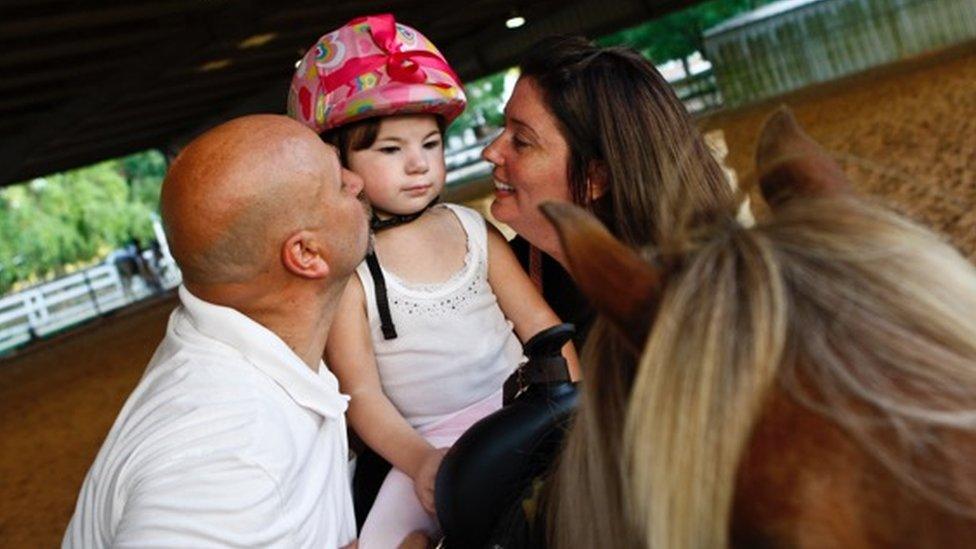
Laney having hippotherapy and pictured with her parents
She has hippotherapy, riding horses to build her core strength, and she loves it. She can't hold on herself but the movement of the horse is similar to human walking. She can now sit up on a horse herself.
She knows she is loved and cared for and I believe she is very happy.
Reaction to microcephaly
"There is huge fear of microcephaly. It's all over the local news about the Zika virus case in Texas.
People are afraid as the virus can be passed by mosquitoes - we have a lot of mosquitoes here in Texas.
I wouldn't choose to have my child to be born with microcephaly, and people should take precautions.
But when it happens to someone I want them to know it's not the end of the world. I want to spread the hope that it's not horrible when it happens.
The reaction I get from people is not pity, but: 'I'm glad it's not my child'.
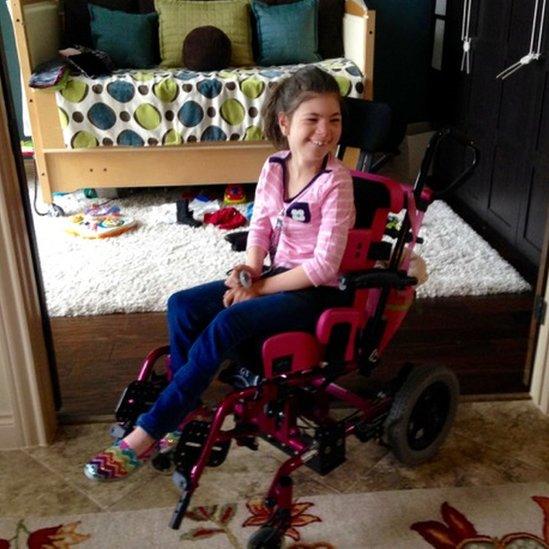
Laney now aged 13
Laney has her bright wheelchair with wheels that light up. She is not someone to be feared and she's approachable.
Laney is not to be pitied. Her condition is just another part of our human condition and we should celebrate that.
I don't want her condition to be associated with a horrible outcome. She's on the severe side of microcephaly but it's not in the end of the world - it will be OK."
- Published3 February 2016
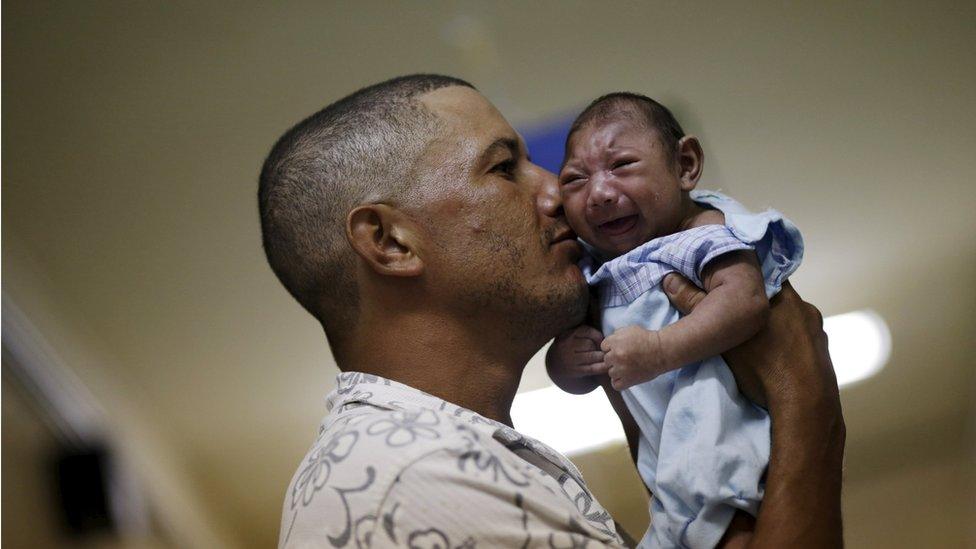
- Published2 February 2016
